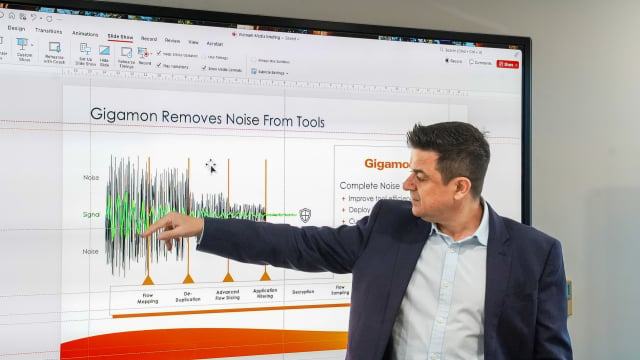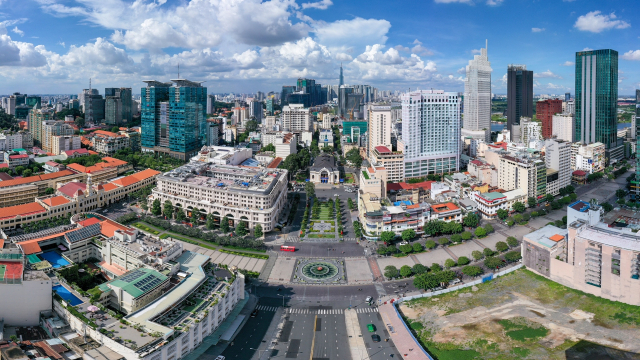Leader Talk
The outstanding woman diplomat Ton Nu Thi Ninh explains the lack of senior personnel in Vietnam
Both employers and employees are responsible for the lack of high-quality human resources in Vietnam.

According to statistics from the Ministry of Education and Training in 2016, about 130,000 Vietnamese citizens were studying abroad, especially in Japan, Australia, the United States, China and the UK.
However, a lot of students have decided not to come back to Vietnam after school due to a number of reasons. This issue has been discussed a lot in the media for many years.
Ton Nu Thi Ninh, former vice chairwoman of the National Assembly's Foreign Affairs Committee, shared with TheLEADER that although the number of students returning home has increased in recent years, it is still very low, which has led to the lack of high-quality personnel in Vietnam nowadays.
According to your observation, has the number of repatriated students increased in recent years?
Ton Nu Thi Ninh: I have seen some foreign students return to Vietnam to work. Despite having no official statistics to compare with last year, I am happy because some people around me have decided to come back to their mother country to work.
Oxford is a prestigious university but my former secretary decided to come back to Vietnam in order to set up her own company after one year working there. I think overseas students are ready to bring the knowledge they have learned in the West to their home country.
Also, it is only easy for those who are very energetic or excellent to land a good job and settle down in a foreign country. Therefore, if Vietnam creates favorable conditions for them to use the knowledge they have learned or give them opportunities to express their abilities, many of them will come back.
If students want to work in private sector, they should create the chances for themselves by establishing their own business or joining hand with other people if they do not have enough resources.
The family is another important factor as Vietnamese parents sometimes want their children not to return due to their opinion that living in the West is more comfortable and their children can earn more money. Obviously, Vietnam cannot compete with many other countries in these two factors.
However, many youngsters still want to live near their family to take care of their parents and contribute to their nation. Vietnam needs young people who have ambition and want to live for their family and society.
Is the refusal of overseas students to return home is one of the reasons why Vietnam lacks good senior personnel?
Ton Nu Thi Ninh: Exactly! The serious lack of senior staff is due to two reasons. Firstly, many young talents are still in the West and refuse to return home.
Secondly, Vietnamese companies are hesitating to train substitutes for the senior personnel. Few companies have found subordinates with talent and loyalty to train their successors.
A CEO of a big firm invited me to talk to his staff. He complained that many young people change their jobs easily and continuously. I recommended young people there that they should aim at a career instead of a job.
Many young people always need a well-paid job; therefore, they change their job when finding one that pays them higher. However, different small jobs could not create a career. If you change your job every six months, no one will dare to believe you.
Therefore, both employers and employees are responsible for the lack of high-quality personnel in Vietnam.
Can the opening of Fulbright University (USA) this year help to address this situation in the future?
Ton Nu Thi Ninh: Not really as international universities such as RMIT have long opened in Vietnam. However, we have not seen any improvement maybe because it comes from Australia whose management training is not as well-known as the U.S. or because it is not the top university in Australia.
RMIT learners are believed to land a job easily; however, I am not sure about the number of those who hold important positions in companies or agencies.
People put a lot of hope Fulbright maybe because it is from the United States; however, in my opinion, we can only conclude about its quality after a training course.
What do you think about the fact that many good people, especially the overseas students, do not like to work in the public sector?
Ton Nu Thi Ninh: Many students do not want to work for the State because they do not like the bureaucracy. However, there are opportunities for those who can strive and patient to get progress.
In my opinion, the harmony between the public and private sectors is very necessary for the development of a country.
Talented people mainly focusing on the private sector is good, but if that causes the lack of excellent personnel in the public sector, the country will be in danger and vice versa.
The private sector also needs the State as it can not operate on its own. If the private sector wants to make the most out of its capabilities, the public sector must be strong, effective and transparent.
Therefore, I hope that there will be good young people who are willing to work in the public sector to contribute to a strong and transparent government apparatus. I hope that there are young people who are not afraid of this long and difficult road.
Thank you very much!
Startup should avoid depending too much on preferential policies
Vietnam turns semiconductor vision into action
The global semiconductor industry is being reshaped by geopolitical tensions, shifting supply chains, and the surge of digital technologies.
Cutting red tape in APA approvals to speed up tax negotiations
The change in APA approval authority is expected to shorten processing time and enhance business proactiveness in international tax negotiations.
Enterprise cybersecurity is under threat from the inside
As hybrid cloud systems grow more complex, Vietnamese enterprises are struggling to detect cybersecurity threats moving laterally within their own networks.
Breakthrough for the international financial center ambition
The submission of the draft resolution on Vietnam’s international financial center to the National Assembly heralds a new developmental era for the country.
How leadership philosophy redefines hospitality in Nha Trang
More than just running a 5-star resort, Kristian Petersen is redefining the art of hospitality with a humane and sustainable leadership philosophy.
When organic becomes an inspiring wellbeing lifestyle
For Tyna Huynh, co-founder of Drinkizz, organic is not just a food choice but a way of life that fosters a deep connection between people, nature and community.































![[Hỏi đáp] Hộ kinh doanh khai thuế theo tháng, quý hay năm theo dự thảo nghị định mới?](https://t.ex-cdn.com/theleader.vn/320w/files/content/2025/12/18/164220vha_5034-1641.jpg)
![[Hỏi đáp] Tạm ngừng kinh doanh, hộ kinh doanh có phải kê khai thuế?](https://t.ex-cdn.com/theleader.vn/192w/files/content/2025/12/18/163704vha_7531-1636.jpg)










